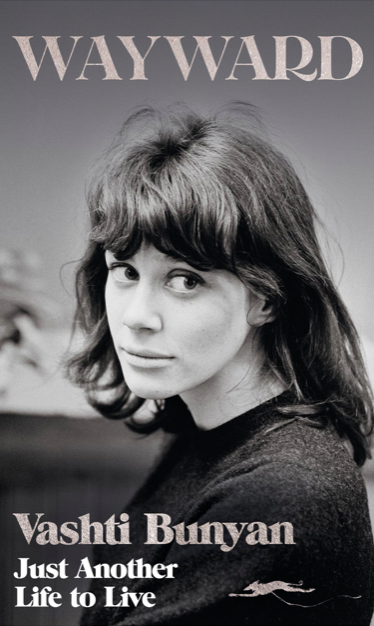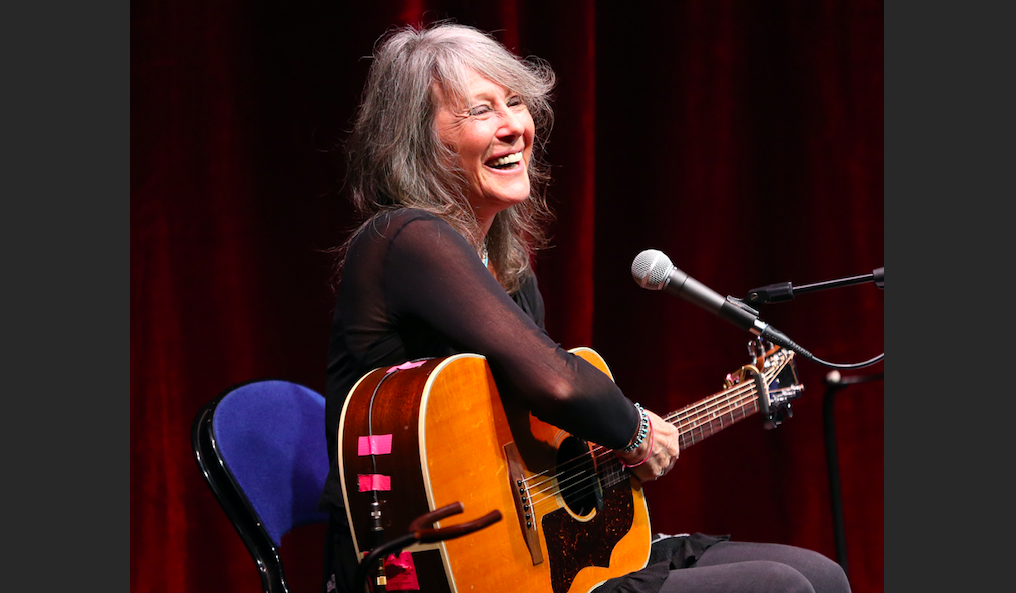“My name is Jennifer Vashti Bunyan, but I have never been known as Jennifer.”
So begins Wayward – Just Another Life To Live, the autobiography of British singer-songwriter Vashti Bunyan. Intentionally or not, it signals that what you are going to read is as much about a search for identity as it is a reminiscence of a rather remarkable life lived. The short version is that she set out at 18 to become a full-time musician. She released an album entitled Just Another Diamond Day at the end of 1970 that failed to find an audience and so she left the music business behind. She was rediscovered when the album was re-issued on CD by Spinney Records in 2000.

Vashti began writing Wayward in 1994. She wanted to explain to her children why they had lived a life that was out of the ordinary. There was no interest on the part of editors to publish such a tale. She returned to writing her story during the first Covid lockdown. Her story is at times joyous, at times grief-filled, at times traumatic, but at all times heartfelt and honest.
“I tried to tell the story in a way to let the reader draw their own conclusions,” Vashti says. She leaves it to the reader to decide whether her life was extraordinary or foolish, adventurous or tame, carefree or troubled. Perhaps it was all of the above. No matter what your conclusion, to call her life interesting would be an understatement.
Vashti was born in 1945 and spent her childhood growing up in war-torn England. She tells of playing on the bomb sites still extant in the middle of London, ignoring signs warning to BEWARE FALLING MASONRY in big red letters. In 1958, she wanted to be Davy Crockett. She was devastated when she learned Fess Parker (who played Crockett on TV) could not be found in the London phone directory as he lived in America “a million miles away.”
She may not have met Fess Parker, but on her journey through life she met many well-known people. She met the poet/playwright Jenny Lewis while attending the Ruskin School of Drawing and Fine Art. It was during her time there she met future Pythons Terry Jones and Michael Pain. Later, she would meet Rolling Stones manager Andrew Loog Oldham, who had her record Some Things Just Stick In Your Mind, an early composition by Mick Jagger and Keith Richards, whom she also met, along with Brian Jones. The song featured Big Jim Sullivan, John McLaughlin, and Jimmy Page on guitars along with Nicky Hopkins on piano.
Vashti also met Donovan Leitch at this time, and it was after meeting him she set out on the journey that would forever change her life. Donovan had just bought some islands off the Isle of Skye in western Scotland. She and Robert Lewis, her partner for most of her journey, got caught up with the idea of joining Donovan and his friends to form an artists’ community on the islands. The problem was Robert and Vashti did not have an automobile.
And so, with the aid of a one-hundred pound loan from Donovan, they purchased a horse and a small wagon. The trip of 650 miles took nearly two years and their adventures comprise two thirds of the book. The characters they meet along the way are numerous and diverse, not the least of which is the horse. When purchased, they were told the horse was named Betsy. A local farrier told them the horse’s real name was Bess, the name Vashti used thereafter. They also learned Bess was much older than they had been led to believe by some ten years.
When I spoke to Vashti, she was gracious, engaging, and charming with no sign of being put out at doing an interview at 3:30 a.m. Edinburgh (Scotland) time. She spoke in the same manner as she wrote her book – plainly and unpretentiously. When talking about lessons learned during her travels one stood out.
“I came away with a greater appreciation of the lives marginalized people live,” she said. In her book it is clear that those who live a life outside the mainstream are treated with disrespect if not downright contempt.
Wayward is a reminiscence of a time some fifty-plus years past. It is also so much more than that; a story of life, love, loss, family, and music told by someone who has unashamedly lived her life to the fullest. You can read it with a sense of nostalgia if you are of an older generation. You can read it with a sense of appreciation for a time long ago and far away. It is both of those things. But moreover, it is a story of triumph of the human spirit.

